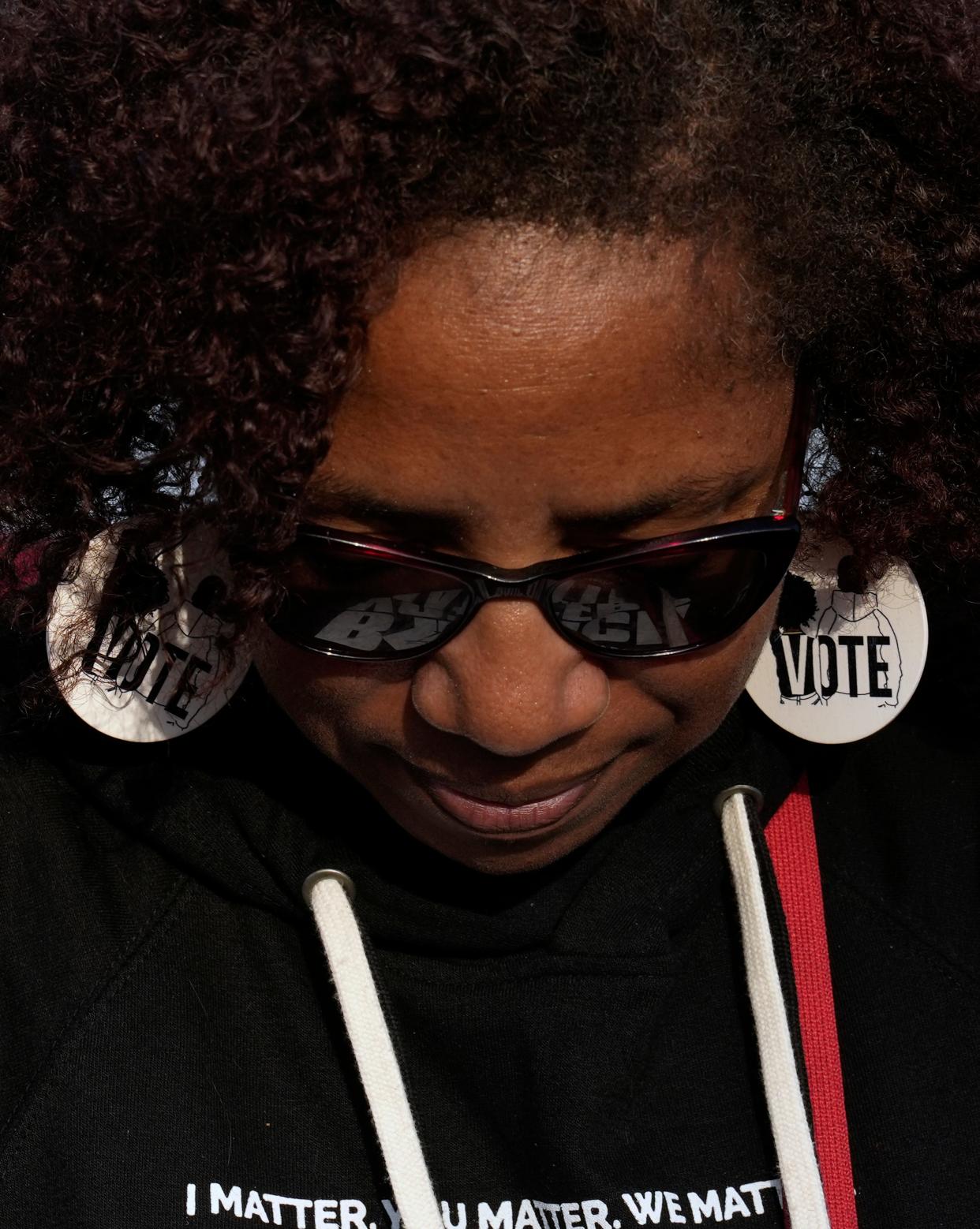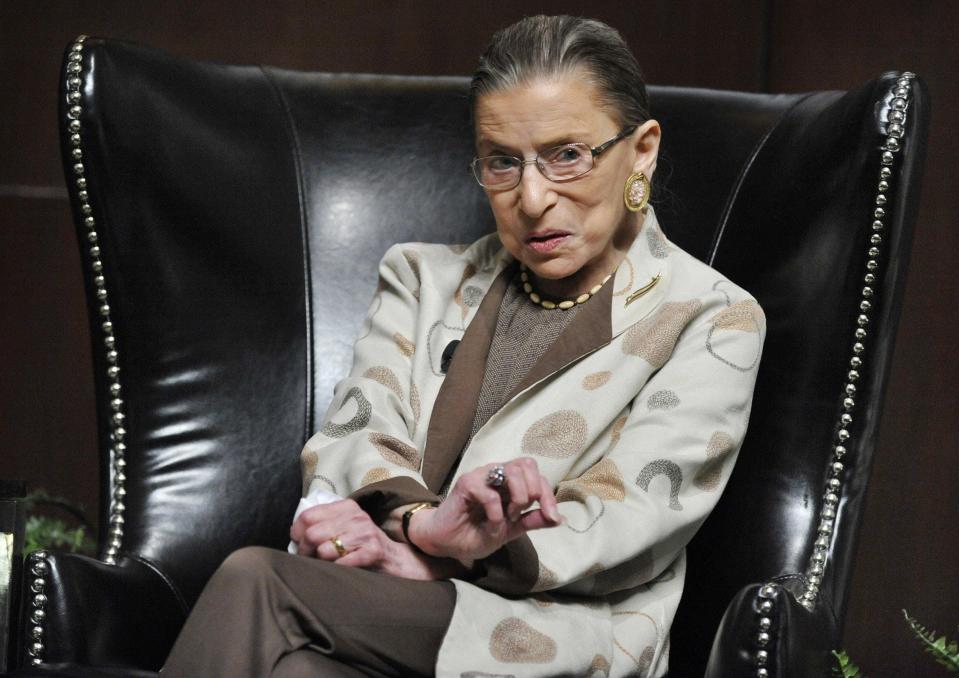Opinion: DeWine knows Ohio elections are safe. He must protect the rights of Black voters

- Oops!Something went wrong.Please try again later.
Richard Topper is a trial attorney with 40 years experience and has testified before the Ohio Legislature on civil justice and redistricting issues. He is committed to Ohioan's right to vote and has volunteered in voter protection efforts (for the Ohio Democratic Party) since 2004.
In its lame duck session, Ohio Republicans passed House Bill 458 which restricts the right to vote of Black Ohioans, seniors, young people, students, persons with disabilities, and those of lesser means. Without testimony or evidence supporting their case, Ohio Republicans are trying to make our state an outlier by imposing the strictest ID barrier in the country.
The bill is not law yet.
More:What you need to know about Ohio election law changes heading to Gov. Mike DeWine
Gov. Mike DeWine can veto it.
The Governor admitted in a recent Dispatch article that the last two secretaries of state both said Ohio elections are safe and secure. Data from the 2020 Election confirms that he is absolutely right.
House Bill 458 is an unnecessary restriction of voting rights.
Michael Harrison:Opinion: Ohioans must stay vigilant against extremists trying to 'kneecap' voting rights
Under the current law which was in effect in 2020, voters could present their driver’s license or state ID, or use reasonable alternatives such as current utility bills, paychecks, government documents or bank statements.
Also, at the early vote, voters could use an absentee ballot request, or on Election Day, they can vote a provisional ballot both of which use an affirmation with the voter’s date of birth, the last four digits of their social security number, and signature.
The new law would take away these long-standing alternatives.
Under House Bill 458, Ohioans cannot vote in person unless they have an Ohio drivers’ license, state ID or a passport.
Unfortunately, the new ultra-restrictive ID law would prevent Ohioans from exercising their right to vote.
Uncontroverted testimony provided to the state Senate this December showed that as many as 11% of US eligible voters don’t have a photo ID.
The percentage is even higher among seniors, people of color, people with disabilities, low-income voters, people living in rural areas, and students. In fact, the North Carolina Supreme Court just threw out a voter photo ID law which had a disparate effect on Black voters.
More:Election bill to require photo ID, tighten absentee ballot deadlines heads to Gov. DeWine
To understand this, let’s talk about what it takes to get an Ohio driver’s license or State ID.
First, a person who doesn’t have ID must travel to an Ohio BMV office. For those without a driver’s license or car, that means finding public transportation or finding or paying for a ride to get to and from the BMV office.
Once at the BMV, an Ohioan must present their birth certificate, a social security number, and documents showing their current address.
Often, these documents are unavailable or very difficult to obtain in a timely manner. For people born out of state or out of county, it takes time through the mail to get one's birth certificate.
Those with roommates, parents, spouses or caregivers may not have the household bills in their names showing their current address. Think of the hassle you may have gone through to get the TSA-approved Real ID to travel by plane.
The history of House Bill 458 shows how Republicans in the Ohio legislature rushed these voter obstacles to a vote.
When House Bill 458 was originally introduced in 2021, the bill had no provisions regarding voter ID and merely removed most August special elections.
It was not until this December, two weeks before the vote, that Republicans added the photo ID provision and extreme restrictions on mail ballots and drop boxes which will cause voters’ ballots to be tossed out. When introducing such consequential provisions in a bill, legislators typically explain their reasons using testimony and evidence.
Neither was done in this case.

One wonders why the Senate and House Republicans rushed a bill to the floor which could affects hundreds of thousands of Ohioans’ fundamental right to vote when data show Ohio elections are safe and secure without presenting a case for it.
Don’t buy their “election integrity” argument. It’s nothing but a cover story for deliberate barriers to our vote. In fact, our elections lack integrity when they don’t include all of us.
We as Ohioans have an obligation to protect the right to vote. Not only for ourselves, but for all Ohioans. Too many people have struggled and died to preserve this sacred right.

As Ruth Bader Ginsburg wrote, “the greatest threat to public confidence in elections…is the prospect of enforcing a purposefully discriminatory law, one that likely imposes an unconstitutional poll tax and risks denying the right to vote to hundreds of thousands of eligible voters.”
Gov. DeWine, Ohioans deserve better than House Bill 458. We ask that you protect Ohioans right to vote and use your veto power to reject this bill.
Richard Topper is a trial attorney with 40 years experience and has testified before the Ohio Legislature on civil justice and redistricting issues. He is committed to Ohioan's right to vote and has volunteered in voter protection efforts (for the Ohio Democratic Party) since 2004.
This article originally appeared on The Columbus Dispatch: Opinion: Mike DeWine must stop House Bill 458 and its voting restriction

